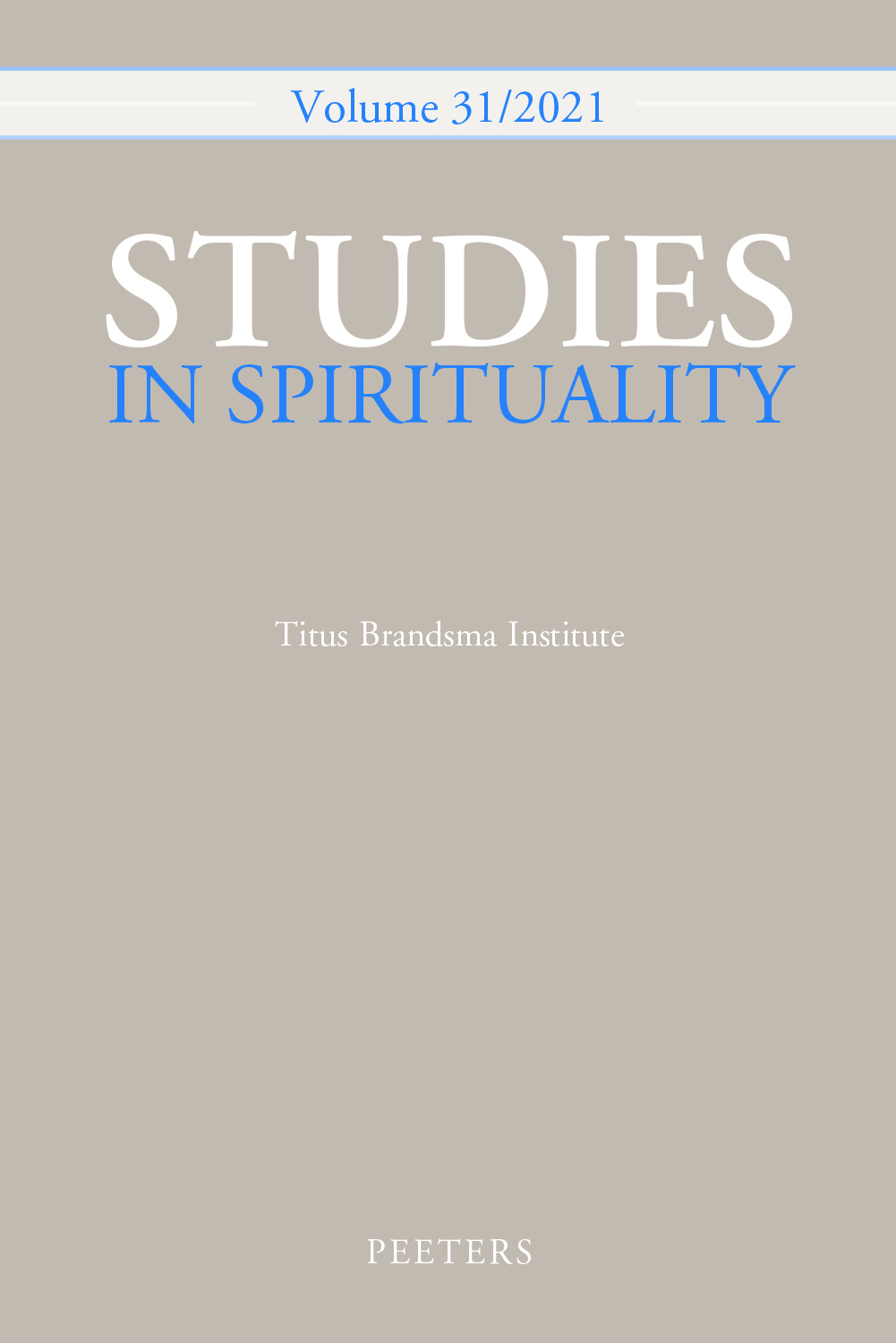 previous article in this issue previous article in this issue | next article in this issue  |

Preview first page |
Document Details : Title: The Language of the Layman Subtitle: The Meaning of Imitatio Christi for a Theory of Spirituality Author(s): BOCKEN, Inigo Journal: Studies in Spirituality Volume: 15 Date: 2005 Pages: 217-249 DOI: 10.2143/SIS.15.0.2003477 Abstract : Both as metaphor and as social reality, the figure of the ‘layman’ belongs to the most fundamental paradigms of modern culture. The paradigm is characterised by a paradox, with which every actual theory of spirituality is confronted. On the one hand, there is the emancipative meaning of ‘layman’ which rejects every kind of authority. On the other hand, one can observe the increasing meaning of ‘specialists’ in our societies. Posing the question what ‘spirituality’ exactly means, one cannot avoid giving a model in which this tension is taken into account. In this article we refer to an important text of the spiritual tradition of the devotio moderna, the Dutch religious reform movement in 15th century: the Imitatio Christi by Thomas of Kempen. Not only can this work be seen as an attempt to develop a spirituality for laymen, but it seems also to offer a new theoretical paradigm for the expression of the concrete encounter with God, different from the abstract scholastic theological and philosophical models. A comparison between the paradigm of the Imitatio Christi and the ‘lay-philosophy’ of Nicholas of Cusa, who was narrowly connected with the devotio moderna, shows the theoretical meaning of this ‘spiritual’ work. |
|


